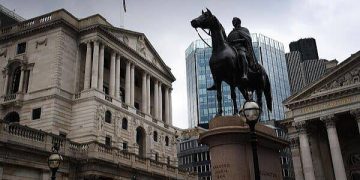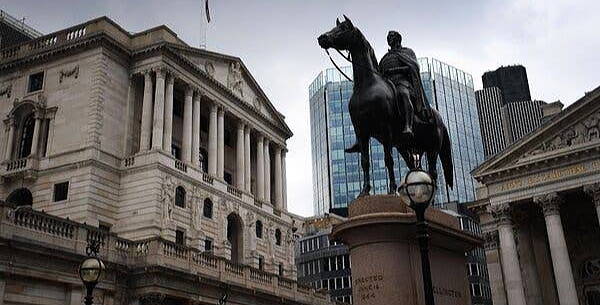Britain has recorded the most significant drop in inflation since the onset of the cost of living crisis, with the annual rate falling to 8.7% in April.
However, amidst this decline, food prices continued to surge at the fastest pace in 45 years.
The Office for National Statistics (ONS) reported that the consumer prices index, which measures annual inflation, dipped below double digits for the first time since August.
It decreased from 10.1% in March, with inflation reaching its peak at 11.1% in October.
This substantial decline can be attributed to the absence of last year’s record energy price hikes for households.
However, the rising cost of essential groceries led to a staggering 19% increase in food and non-alcoholic drink prices over the 12-month period ending in April.
Grant Fitzner, the ONS chief economist, noted that “while prices remained significantly higher compared to the previous year, annual food price inflation had reached historic highs.”
Despite predictions by city economists of a more substantial decline to 8.2% in April, stubbornly high inflation levels indicate a slower cooling of the headline rate than anticipated.
Economists caution that Rishi Sunak’s target to halve the inflation rate this year will be achieved within a narrower margin than expected.
The figures are likely to strengthen expectations for the Bank of England (BOE) to further increase interest rates at its upcoming meeting in June, as it continues its most aggressive campaign against inflation in decades.
Earlier this month, the central bank had projected inflation to fall to 8.4% in April.
The latest report from the ONS reveals that electricity and gas prices contributed to a 1.4 percentage point decline in the annual inflation rate, as last year’s Ofgem price cap hike is excluded from the calculations.
However, this reduction was partially offset by the continued rise in food prices, as well as increased costs for recreation and culture, alcoholic beverages and tobacco, communication, and transport.
Reacting to the development, Rachel Reeves, the shadow chancellor, expressed concerns about escalating bills and the persistent increase in the cost of essentials.
She questioned why the Conservative government has failed to adequately address the ongoing cost of living crisis and implement a substantial windfall tax on the substantial profits of oil and gas corporations.
Chancellor Jeremy Hunt acknowledged the positive aspect of inflation now being in single digits but noted that food prices continue to rise at an alarming rate, despite the decisive actions taken to combat inflation, as acknowledged by the IMF.


































